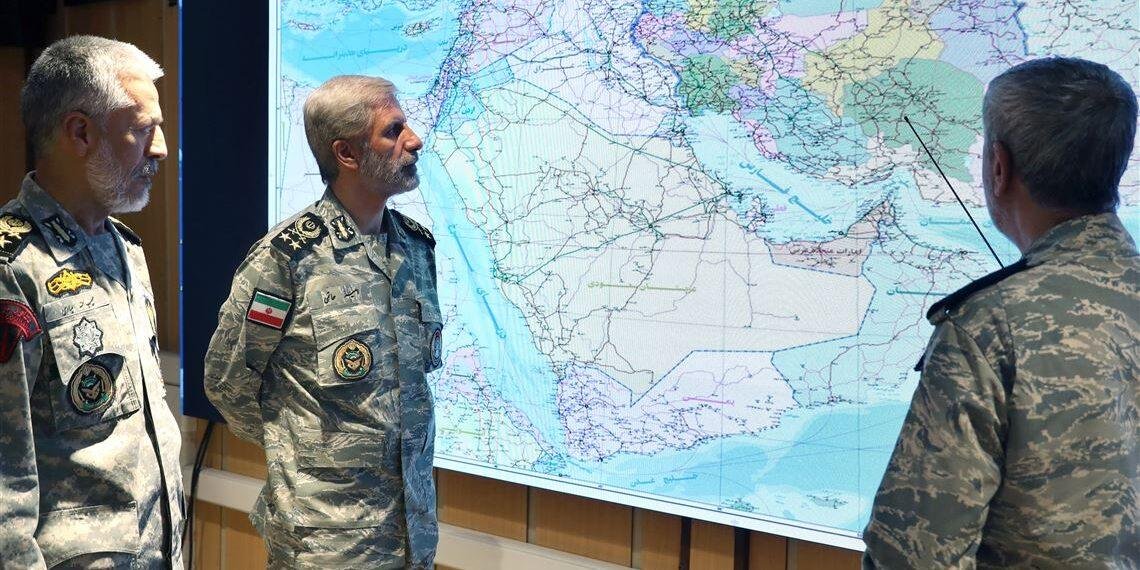Iran’s armed forces have claimed responsibility for multiple missile attacks targeting the Al Udeid Air Base in Qatar, the largest U.S. military installation in the Middle East. The strike, dubbed “Operation Harbinger of Conquest” by Iranian state media, was described as a retaliatory response to U.S. airstrikes on Iranian nuclear facilities over the weekend. The attack heightened tensions in an already volatile region, though it was carefully calibrated to avoid casualties, signaling Iran’s intent to project strength while leaving room for de-escalation.
The Al Udeid Air Base, located southwest of Doha, Qatar, hosts approximately 10,000 U.S. troops and serves as the regional headquarters for the U.S. Central Command. The base is a critical hub for U.S. military operations across the Middle East, including past campaigns in Iraq and Afghanistan. On Monday evening, explosions lit up the skies over Doha as Iran launched a barrage of missiles, with reports citing between six and fourteen missiles aimed at the base.
Iran’s military described the strike as a “powerful and destructive” response to “U.S. aggression,” specifically referencing American B-2 bomber strikes on three Iranian nuclear sites; Isfahan, Natanz, and Fordow, codenamed “Midnight Hammer.” These U.S. strikes, which deployed 30,000-pound “bunker buster” bombs, were the first direct American military action on Iranian soil and were intended to disrupt Iran’s nuclear program.
Iranian Foreign Minister Abbas Araghchi stated that the attack on Al Udeid was a direct retaliation for the U.S. violation of Iran’s “territorial integrity and sovereignty.” However, Iran provided advance notice of the strike to Qatari and U.S. officials, allowing the base to be partially evacuated and Qatar’s air defenses to intercept most, if not all, of the missiles. No casualties were reported, and damage to the base was minimal, with U.S. President Donald Trump describing Iran’s response as “weak and expected.”
Read also:
- Global sports in limbo as Israel-Iran war disrupts tournaments , Athlete travels, lose of lives
- MPAC condemns U.S. attack on Iran, warns of rising global tensions
- Iran’s president warns of retaliation after US airstrikes
Qatar’s Foreign Ministry condemned the attack as a “flagrant violation” of its sovereignty and international law, emphasizing that its air defenses successfully intercepted the missiles. Qatar briefly closed its airspace, causing widespread flight disruptions across the region, with airlines like Qatar Airways, Emirates, and Air India diverting or canceling flights. Saudi Arabia also denounced the strike, pledging to deploy “all of its capabilities” to support Qatar, while other Gulf states called for de-escalation without explicitly condemning Iran.
The attack was not limited to Qatar, as Iran also reportedly targeted the Ain al-Assad base in Iraq, though Tehran did not officially claim responsibility for that strike, which may have been carried out by Iran-backed militias. The White House confirmed that 14 missiles were fired in total, with at least 10 aimed at Al Udeid and one at Ain al-Assad.
Analysts suggest Iran’s attack was deliberately symbolic, designed to demonstrate military capability and appease domestic audiences while avoiding a broader conflict. By providing advance warning and targeting a heavily fortified base, Iran minimized the risk of escalation. The New York Times noted that the strike echoed Iran’s 2020 response to the U.S. assassination of General Qassem Soleimani, which similarly prioritized optics over destruction.
As the situation evolves, the international community watches closely, with oil markets reacting cautiously and regional powers navigating their roles in a potential de-escalation process. For now, the absence of casualties and the reopening of Qatar’s airspace signal a tentative step back from the brink, but the underlying issues fueling the Iran-Israel-U.S. conflict remain unresolved.






